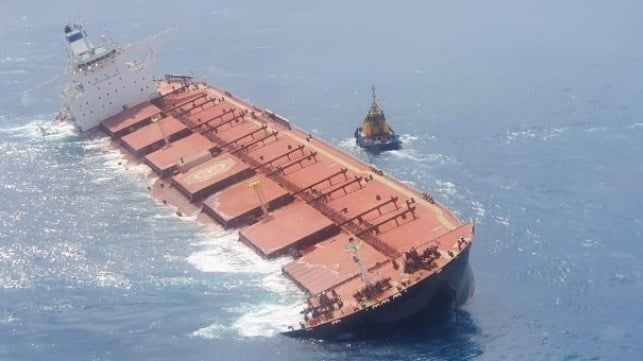Bulker Safety Improves as Sector Continues Strong Growth
Bulk Carrier Safety Improves, Yet Risks Remain

A recent report from INTERCARGO highlights significant advancements in safety within the bulk carrier industry over the past decade. Despite a notable decrease in vessel casualties and fatalities, the trade group emphasizes the ongoing need for enhanced safety measures as global demand for dry cargo continues to rise. With over 12,500 bulk carriers in operation worldwide, the industry faces persistent challenges that require immediate attention.
Decline in Casualties and Ongoing Risks
According to INTERCARGO, the bulk carrier sector has recorded 20 casualties involving vessels of 10,000 deadweight tons (dwt) or more in the last ten years. This figure marks a significant drop from previous decades, resulting in 89 seafarer fatalities, averaging nine deaths annually. In comparison, the 1990s saw annual losses ranging from five to 26 vessels, with fatalities fluctuating between 23 and 186 each year. The report attributes this decline to improved crew training, advancements in ship design, the introduction of new technologies, and stricter regulatory compliance.
INTERCARGO expresses concern over RightShip’s decision to reduce age limit
However, the report identifies three critical risks that continue to threaten the industry. Cargo liquefaction poses the greatest danger, accounting for nearly 62% of seafarer fatalities. Additionally, cargo shifting has led to the sinking of two vessels, resulting in 12 deaths. Grounding remains the most significant risk to vessels, responsible for nearly 45% of the ships lost in the past decade. While high-profile incidents like the losses of the Wakashio and Stellar Banner in 2020 garnered attention, most casualties occurred among smaller vessels, particularly those weighing between 50,000 and 59,000 dwt or under 35,000 dwt and over 80,000 dwt.
Challenges and Industry Commitment
Despite improvements, INTERCARGO warns that substantial risks persist, particularly concerning improperly declared cargoes, navigational failures, and delays in accident investigation reports from flag States. The average reporting time exceeds two years, hindering the industry’s ability to learn from incidents and implement timely corrective measures. Furthermore, the report notes that three vessels lost in attacks by Houthi forces were bulk carriers, resulting in the loss of four seafarers. These attacks have raised safety concerns, complicating recruitment efforts within the sector.
As a proactive trade group, INTERCARGO is committed to collaborating with international organizations to further enhance safety in the bulk carrier industry. The group reiterates its call for a unified industry commitment to achieving zero loss of life and vessels, emphasizing the importance of ongoing vigilance and improvement in safety practices.
